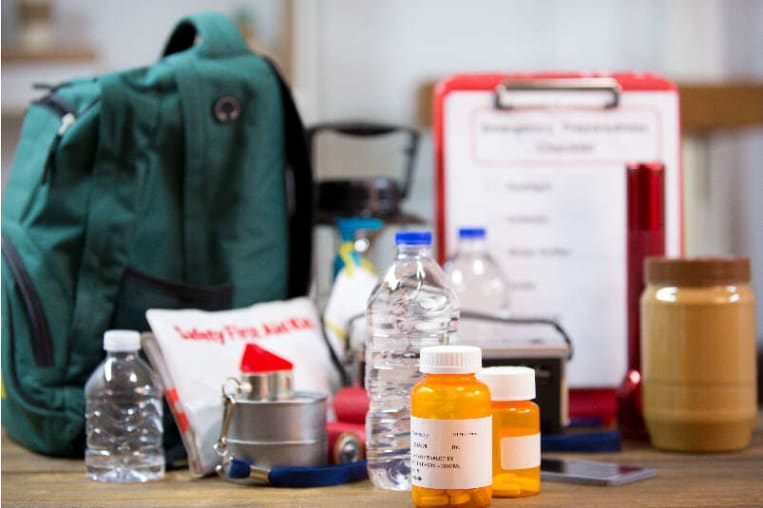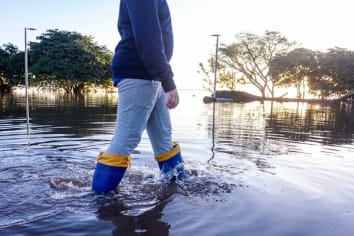
BBB Tip: Planning for an evacuation

(Getty Images)
While there is no specific disaster season, the risk of flooding is higher during wet seasons with frequent and intense rainfall. Thawing snow and ice can also cause flooding, making it critical to take steps to protect your home and belongings from flood damage. Likewise, other disasters like hurricanes, fires, earthquakes and other events can make an evacuation necessary.
If you've been called to evacuate, make sure to grab important documents and valuables to preserve them. Some things are too important to be left behind. FEMA offers "The Five Ps of Evacuation: People, Prescriptions, Paper, Personal Needs, and Priceless Items." BBB recommends a sixth: Pets.
Checklist for what to do in case of an evacuation
- Take photos. Having pictures or video of your car, home or business, and your valuables before possible damage can help with future insurance claims. Keep these in a separate album so they are easy to find in the event something gets damaged.
- Backup your files. Don’t leave important data on computers in places at risk of flooding. Store them on a secure portable hard drive or in the digital Cloud away from your home or business.
- Keep copies of your insurance on-hand or have electronic versions available.
- Collect mementos. Take family photos and other irreplaceable items and keep them in a watertight container.
- Collect documents. While some official documents are replaceable, it can make your life a whole lot easier to bring them. If original copies are stored in your home or business, they are irreplaceable and should always be taken with you. Some items may include your ID, passport, social security card and birth certificate, as well as marriage licenses, pink slips, signed contracts, wills and medical information (like allergies, blood type, and emergency contacts). If you can, laminate these documents or put them in a waterproof binder.
- Collect your medicines. Keep medicine prescriptions, contacts, glasses, and a first aid kit somewhere safe where water can’t get to it.
- Prepare an emergency kit. Pack changes of clothes, boots, flashlights, water, and emergency radios to monitor the weather without electricity. The Red Cross suggests enough supplies for a three-day evacuation, and a two-week supply for use at home.
- Discuss your emergency plan with family members, including designating a safe space inside the house, or where to meet outside in case of separation.
- Plan for your animals. Make sure to include an emergency plan for your pets and livestock.
For more information
Please check out BBB's Natural Disasters HQ for more tips for handling disasters in your area.
Related News
Still Need Assistance?
Contact Your Local BBB
Your local Better Business Bureau can assist you with finding businesses you can trust. Start With Trust®.
Additional Resources
Let BBB help you resolve problems with a business
Research and report on scams and fraud using BBB Scam Tracker
Learn more about the value of BBB Accreditation


